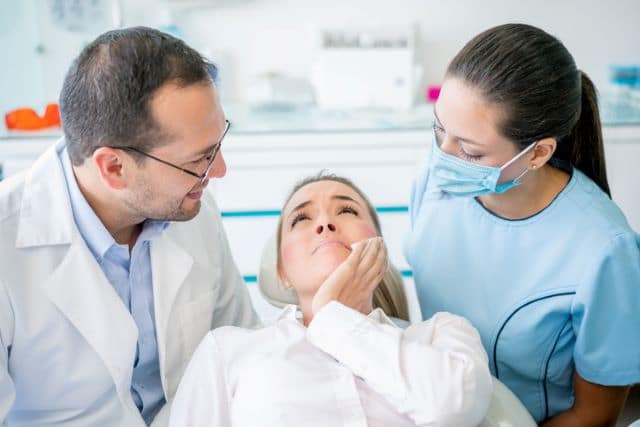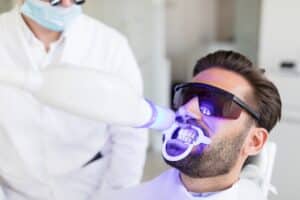Dental emergencies can happen unexpectedly and often result in severe pain, discomfort, or even permanent damage to the teeth and gums. Whether it’s a severe toothache, a knocked-out tooth, or a dental injury, seeking prompt treatment is crucial in managing the situation and preserving oral health. In this informative article, we will explore the importance of seeking immediate treatment for dental emergencies and how timely intervention can significantly affect such situations’ outcome.
Managing Severe Pain And Discomfort
One of the primary reasons for seeking prompt treatment during a dental emergency is to alleviate severe pain and discomfort. Dental emergencies, such as abscessed or fractured teeth, can cause excruciating pain that significantly impacts daily life. By seeking immediate care, dentists can address the underlying cause of the pain and provide effective pain relief. Delaying treatment can lead to worsening pain and potential complications.
Preventing Further Damage
In dental emergencies, prompt treatment can help prevent further damage to the teeth and surrounding tissues. For instance, if a tooth is knocked out, re-implantation within a specific time frame increases the chances of survival. Similarly, early intervention can prevent the damage from worsening in cases of chipped or fractured teeth, which may necessitate more extensive and costly treatments later on.
Preserving Teeth And Oral Structures
Timely treatment can make a significant difference in preserving the affected teeth and surrounding oral structures. For example, prompt treatment with antibiotics and drainage can prevent the infection from spreading to neighboring teeth or into the jawbone in cases of dental infections or abscesses. By preserving the natural teeth and oral structures, patients can avoid the need for extensive tooth extractions or other restorative procedures.
Reducing The Risk Of Complications
Dental emergencies that are left untreated or delayed can lead to complications that may require more complex and invasive treatments. For instance, an untreated dental infection can spread to other body parts, leading to serious health consequences. By seeking immediate treatment, patients can reduce the risk of complications and ensure a faster and smoother recovery.
Restoring Function And Aesthetics
Dental emergencies can significantly impact the function and aesthetics of the smile. For instance, a missing tooth due to trauma or injury can affect chewing ability and speech. Quick treatment options, such as dental implants or immediate dentures, can help restore function and aesthetics promptly, allowing patients to confidently resume their normal activities.
Minimizing Costly Treatments
Addressing dental emergencies promptly can also minimize the overall cost of treatment. Timely intervention often involves simpler and less invasive procedures, generally more cost-effective than complex treatments that may be necessary if the issue is left unattended. By taking care of dental emergencies early on, patients can save time and money in the long run.
Providing Peace Of Mind
Dental emergencies can be stressful and cause anxiety for patients. Seeking immediate treatment can provide peace of mind, knowing that a dental professional is addressing the issue. Dentists can assess the situation, provide a proper diagnosis, and offer suitable treatment options, giving patients reassurance and confidence in their oral health care.
The Bottom Line
The importance of prompt treatment for dental emergencies cannot be overstated. Seeking immediate care alleviates pain and discomfort, prevents further damage, preserves teeth and oral structures, and reduces the risk of complications. Additionally, early intervention can restore function and aesthetics, minimize costly treatments, and provide patients peace of mind. If you or a loved one experiences a dental emergency, do not hesitate to seek immediate treatment from a dental professional. Dental emergencies require prompt attention, and timely intervention can make all the difference in ensuring the best possible outcome for your oral health.





